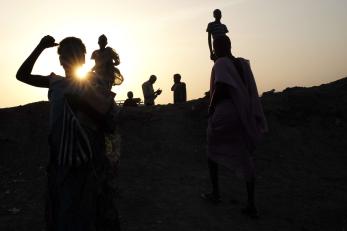Informal Social Protection Networks and Resilience in Conflict-affected Contexts
Lessons from South Sudan and Yemen

Download the brief ▸
Download the summary ▸
Studies from various contexts make clear that much of the assistance that crisis-affected populations receive does not come from international aid agencies or governments, but from others within their own networks. Due to funding gaps and the compounding threats of climate change, conflict, and COVID-19, aid actors are now facing an unprecedented level of need. In this context, leveraging and strengthening informal support systems is an untapped opportunity and an imperative for aid actors to strengthen local sources of resilience. This brief synthesizes findings from two studies conducted in South Sudan and Yemen to offer three key lessons and recommendations for aid actors to better account for and help strengthen informal support networks.